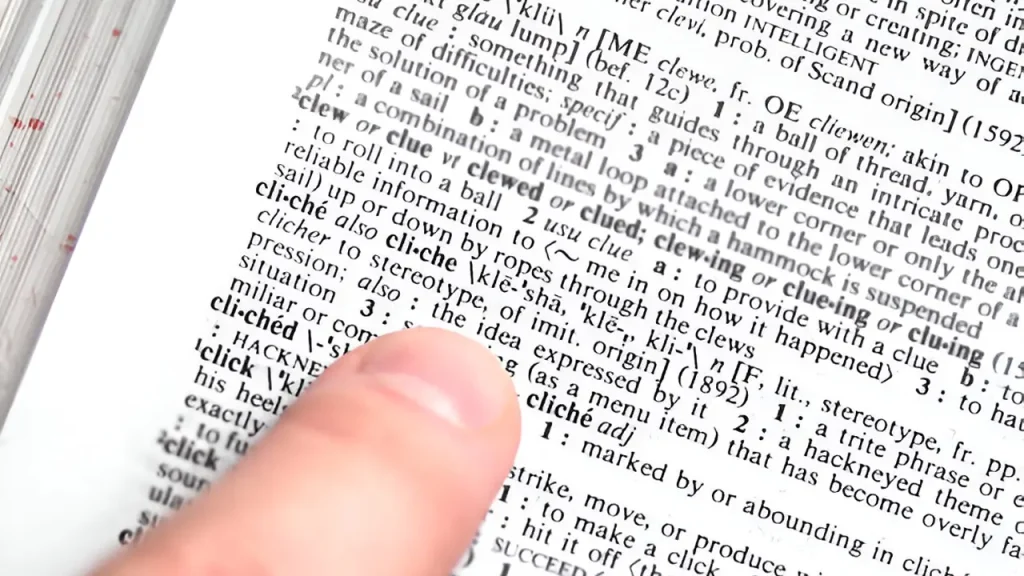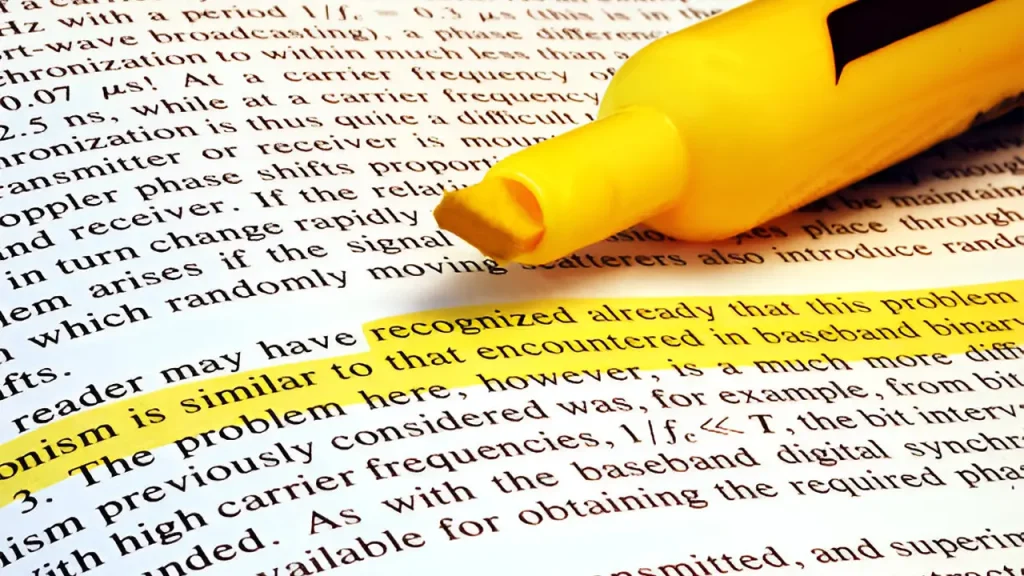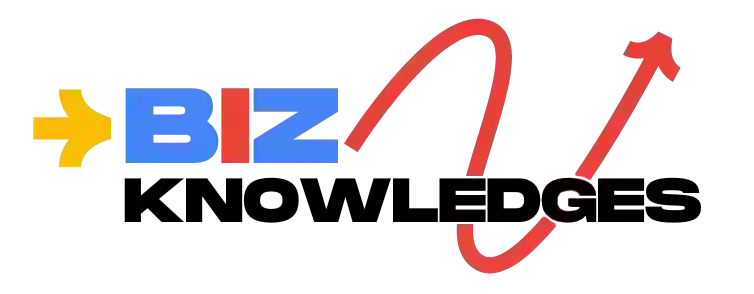Daftarian How to Pronounce: A Step-by-Step Pronunciation Guide

When I first encountered the name “Daftarian,” I knew I needed to get it right—not just for accuracy, but out of respect for its significance. Pronunciation is more than just sounding out letters; it’s about honoring identity and fostering connection. In this guide, I’ll walk you through pronouncing “Daftarian” correctly, using easy tips and insights I’ve gained as an expert in mastering names. Let’s unlock the confidence to say it with precision and respect!
Practical Tips for Mastering Pronunciation
Learning how to pronounce unfamiliar names or words, like “Daftarian,” can feel intimidating, especially when it’s a name you encounter in conversations or professional settings. But with the right strategies, pronunciation becomes much easier and more natural. Here are some practical tips to help you master pronunciation and say “Daftarian” or any challenging word with confidence.
1. Break It Down Phonetically
The first step to mastering pronunciation is to break the word down into smaller, manageable parts. Take “Daftarian” as an example. When you look at it, it can seem complex, but once you break it into syllables—Daf-tar-i-an—it becomes much easier to say. Focus on each syllable individually, then slowly piece them together. This approach helps in grasping even the trickiest pronunciations.
2. Listen and Imitate
One of the most effective ways to learn how to pronounce a name or word is by listening to native speakers or those who are familiar with the word. For instance, you could search for an audio clip or video where someone says “Daftarian” correctly. Platforms like YouTube or pronunciation websites offer a wealth of resources where you can hear names spoken aloud. Once you hear it, repeat it multiple times to get a feel for the flow and rhythm of the word.
3. Focus on the Stress
In English, stress can change how a word sounds. Many names, including “Daftarian,” have specific syllables that are stressed more than others. In this case, the emphasis may fall on the second syllable: DAF-tar-i-an. By recognizing the stressed syllable, you can better replicate the natural sound and rhythm of the word.
4. Use Visualization Techniques
Sometimes, pairing a difficult word with a mental image can help anchor the pronunciation in your memory. Imagine someone you know or a famous figure with a similar-sounding name to create associations that make it easier to recall the pronunciation. For example, you might imagine someone named “Daf” and then picture them interacting with a “tar” object to create a fun, memorable link.
5. Practice Out Loud
It’s important to say the word out loud. Whispering or thinking it doesn’t help as much because your mouth and vocal cords need to get used to the motion and sounds. Set aside time to practice saying “Daftarian” aloud—ideally in different tones and speeds. Try it slowly first, then gradually speed up until you can say it comfortably in conversation.
6. Ask for Feedback
If you’re still unsure whether you’re pronouncing a word like “Daftarian” correctly, don’t hesitate to ask someone who knows. In most cases, people are happy to help, and you’ll gain confidence in your ability to pronounce the word correctly. It’s a great way to learn through social interaction and real-time feedback.
7. Use Pronunciation Tools
There are numerous apps and online tools designed to help with pronunciation. Tools like Forvo or Google’s pronunciation feature can offer guidance on words like “Daftarian.” You can even adjust the speed to hear the word more clearly or in slower, exaggerated tones to help you grasp each sound.
8. Repeat Consistently
The key to mastering any skill is repetition, and pronunciation is no exception. Consistently practicing “Daftarian” will help you make it a part of your muscle memory. Whether you’re driving to work, cooking, or getting ready in the morning, practice saying it until it becomes second nature.
Common Mispronunciations and Corrections
When it comes to names like “Daftarian,” mispronunciations are fairly common, especially for those who are encountering the name for the first time. Understanding where people often go wrong can help you avoid these pitfalls and pronounce the name more accurately. Let’s explore some common mispronunciations of “Daftarian” and how to correct them.

1. Mispronunciation: “Daf-tar-ee-an”
One frequent mistake is emphasizing the wrong syllable or adding unnecessary sounds. Many people may attempt to pronounce it as Daf-tar-ee-an, placing an extra emphasis on the “ee” sound in the middle of the word. This adds a syllable that doesn’t belong and makes the name sound more complex than it is.
Correction: To fix this, remember that “Daftarian” has a more straightforward rhythm. It should be broken down as DAF-tar-i-an—with the second syllable being pronounced more softly and without the drawn-out “ee” sound. The ending should flow more naturally as i-an, not ee-an.
2. Mispronunciation: “Daf-teer-ian”
Another common misstep is changing the “a” sound to an “ee” sound, resulting in something like Daf-teer-ian. This often happens when speakers overthink the name or try to give it an exotic twist, turning the second syllable into a long vowel sound that distorts the name.
Correction: Focus on maintaining the crisp “a” sound, especially in the first and second syllables. The correct way to say it is with a clear Daf and tar sound. There’s no need to elongate or modify the vowels.
3. Mispronunciation: “Daf-tar-yen”
Some speakers may mistakenly condense the middle of the name, merging the syllables and replacing the “i-an” ending with something like yen. This creates a clipped version of the name, which is quite different from the original pronunciation.
Correction: Ensure that you pronounce all the syllables clearly. The ending “i-an” should sound like ee-an, where the “i” is subtle but distinct. The emphasis on the second syllable tar remains key, while the final syllables should roll off smoothly as i-an.
4. Mispronunciation: “Daf-ter-ian”
Some people may accidentally switch the “a” sound in the middle of the name to an “e” sound, saying something like Daf-ter-ian. This typically happens when speakers are rushing through the name or are unsure of the exact pronunciation.
Correction: The vowel sounds in “Daftarian” are important. To get it right, maintain the “a” sound as in “car” for both the first and second syllables—DAF-tar-i-an. By paying attention to vowel consistency, you’ll avoid this common error.
5. Mispronunciation: “Daf-dar-i-an”
In some cases, speakers might over-pronounce the first syllable, making it sound more like Daf-dar-i-an with a heavier emphasis on the “d” sound. This mispronunciation alters the flow and gives the name a harsher tone.
Correction: To correct this, soften the first syllable. It’s DAF, not DAF-DAR. Keeping the flow smooth from DAF to tar without adding extra sounds is key. Remember, less is more when it comes to name pronunciation.
6. Mispronunciation: “Dof-tarian”
A subtle but common mistake is changing the “a” sound in the first syllable to an “o” sound, resulting in Dof-tarian. This error usually happens when people are unfamiliar with the name and are guessing based on how similar words sound.
Correction: To avoid this, remember that “Daftarian” starts with a short “a” sound, like the “a” in “cat.” Pronouncing it as DAF-tar-i-an keeps the name true to its original form, and you’ll avoid shifting into a long “o” sound.
The Importance of Accurate Pronunciation
Pronouncing names correctly may seem like a small detail, but it carries significant weight, especially in our increasingly diverse and interconnected world. Whether you’re saying “Daftarian” or any other name, the importance of accurate pronunciation goes far beyond simply getting the sounds right. It touches on respect, relationships, and effective communication. Here’s why it matters:

1. Respect and Acknowledgment
Names are a core part of a person’s identity. When you take the time to pronounce someone’s name correctly—whether it’s “Daftarian” or any other—it shows that you respect who they are. Names carry personal, cultural, and familial significance, and mispronouncing them can feel dismissive, even if it’s unintentional. Accurate pronunciation reflects the effort you’ve made to honor that individual’s background and experiences, fostering mutual respect.
2. Building Trust and Rapport
Imagine being in a professional setting where you meet someone for the first time. If you confidently and correctly pronounce their name, you set a positive tone for the conversation. It creates an immediate sense of trust and shows that you care enough to get things right. On the other hand, repeatedly mispronouncing someone’s name, such as saying “Daftarian” incorrectly, can create an awkward barrier and even damage rapport. Mastering names is a small but powerful way to build stronger relationships—whether in business, social, or academic environments.
3. Cultural Sensitivity and Inclusivity
In today’s globalized society, we encounter names from various cultures and languages. Pronouncing them correctly demonstrates cultural awareness and inclusivity. When you make an effort to say “Daftarian” accurately, you signal that you’re open to embracing and respecting different cultures. This small act of learning how to pronounce a name correctly helps create a welcoming atmosphere where people feel valued and understood, regardless of their background.
4. Boosting Personal Confidence
For the person whose name is often mispronounced, it can be uncomfortable and disheartening. Names that are frequently said wrong can make someone feel marginalized or unseen. When you pronounce a name like “Daftarian” correctly, it validates the individual and boosts their confidence, especially in group settings. It also allows them to engage more freely, knowing that they are being recognized fully for who they are.
5. Enhancing Communication
Effective communication is key in both personal and professional settings, and pronunciation is a big part of that. When names are mispronounced, it can create confusion or misunderstandings, especially if it happens repeatedly. On the flip side, getting someone’s name right, like “Daftarian,” immediately clears the path for smoother conversations. It eliminates any distraction or need for corrections, allowing both parties to focus on the core of their discussion.
6. First Impressions Matter
Whether you’re meeting someone for the first time or addressing a group of people, the way you say their names forms part of the first impression. Mispronouncing a name can make you seem unprepared or uninterested, which isn’t ideal, especially in formal or important settings. However, pronouncing names like “Daftarian” correctly demonstrates attention to detail and genuine interest in the person, leaving a positive and lasting impression.
7. Professionalism
In professional contexts, especially in fields like business, education, and healthcare, accurate pronunciation is a mark of professionalism. If you’re presenting in a meeting or addressing a client, saying names correctly—whether it’s “Daftarian” or another name—adds credibility to your communication. It shows that you’re diligent, attentive, and considerate, qualities that are highly valued in any workplace.
8. Preventing Embarrassment
Mispronouncing a name can lead to embarrassing situations for both the speaker and the person whose name is being mispronounced. It’s especially awkward when the mistake is repeated multiple times. Taking the time to learn how to pronounce “Daftarian” properly before a meeting or conversation can save everyone from these uncomfortable moments, making the interaction smoother and more pleasant.
9. It’s a Skill That Builds Over Time
Learning to pronounce names correctly is a skill that improves with practice. The more you do it, the easier it becomes to approach unfamiliar names with confidence. If you take the time to learn names like “Daftarian” today, it will help you handle similar names in the future, building your communication skills and cultural awareness along the way.
Why the Importance of Pronunciation
Pronunciation plays a vital role in communication, extending far beyond just getting the words right. It directly influences how we are understood and perceived by others, shaping the way we connect with those around us. Whether it’s the pronunciation of a word like “Daftarian” or any other complex term, mastering how we say things can have profound effects on relationships, clarity, and self-confidence. Let’s dive deeper into why pronunciation is so important.
1. Clear Communication
The primary purpose of language is to communicate effectively, and pronunciation is central to this. When you mispronounce a word or name, like “Daftarian,” the listener may struggle to understand you, leading to confusion or miscommunication. Proper pronunciation ensures that your message is heard and understood correctly, reducing the need for clarification and making the conversation smoother. In professional and personal conversations, clarity is key, and accurate pronunciation helps you achieve that.
2. Shaping First Impressions
In any interaction, the way we speak leaves a lasting impression. Mispronouncing someone’s name or key terms, such as “Daftarian,” can give the impression that you are either unprepared or uninterested. On the contrary, getting the pronunciation right shows that you’ve paid attention to detail, which reflects well on you. It demonstrates professionalism, respect, and competence. Whether you’re meeting someone for the first time or speaking in a public setting, the way you pronounce words can shape how others perceive you.
3. Cultural and Social Sensitivity
Names often carry deep cultural or historical significance, and getting them right is an essential aspect of showing cultural sensitivity. In a world where global interactions are common, mispronouncing names or words from different cultures can come across as insensitive, even if unintentionally. Proper pronunciation of “Daftarian” or any culturally significant name shows that you value diversity and are open to learning about different backgrounds. This inclusiveness helps build bridges across cultural divides and fosters understanding.
4. Personal and Emotional Impact
Imagine hearing your name mispronounced repeatedly. It can feel frustrating, alienating, or even disrespectful. On the flip side, when someone pronounces your name correctly—especially if it’s a name like “Daftarian,” which might be unfamiliar to many—it can create a sense of validation and belonging. Names are a core part of our identity, and when they are pronounced correctly, it feels like an acknowledgment of who we are. By pronouncing someone’s name accurately, you create a positive emotional impact, making them feel respected and seen.
5. Boosting Confidence
Accurate pronunciation boosts not only the listener’s confidence but also your own. When you know how to say a word or name properly, you speak with greater confidence and authority. Whether you’re presenting in a meeting, teaching, or networking, getting names like “Daftarian” right demonstrates that you are knowledgeable and prepared. This can lead to more engaging conversations, better professional opportunities, and a stronger presence in social situations.
6. Reducing Misunderstandings
Mispronunciation can easily lead to misunderstandings, especially in complex conversations. For instance, pronouncing “Daftarian” incorrectly may lead to confusion over whether you’re referring to a person, place, or concept. Small mistakes in pronunciation can cascade into bigger communication errors, which can be particularly damaging in professional or formal settings. By ensuring accurate pronunciation, you minimize the chances of being misunderstood, allowing the conversation to stay focused on the content rather than distractions caused by unclear speech.
7. Enhancing Learning and Language Skills
Learning how to pronounce names and words correctly helps develop language skills over time. Every new name or word you encounter—like “Daftarian”—gives you the opportunity to practice and refine your understanding of sounds, accents, and syllables. This process strengthens your overall linguistic ability and makes it easier to approach new, unfamiliar terms with confidence. Over time, mastering pronunciation becomes a skill that enhances your language proficiency, regardless of the language you’re speaking.
8. Fostering Inclusivity
In multicultural environments, the importance of pronunciation extends to inclusivity. When you make an effort to pronounce someone’s name correctly, you show that you are welcoming and inclusive. Mispronunciations, especially when frequent, can make people feel excluded or marginalized. Correct pronunciation promotes a sense of belonging and inclusion, making everyone feel valued within the group, whether it’s in a classroom, office, or social gathering.
9. Professional Advancement
In many fields, particularly in customer-facing roles, teaching, or leadership positions, accurate pronunciation is crucial. It enhances your professional image, showing that you are articulate and careful with your words. Whether you’re pronouncing “Daftarian” in a meeting or introducing colleagues, getting names right is a subtle yet powerful indicator of your attention to detail. It can set you apart in professional circles, improving your relationships with clients, colleagues, or superiors.
How to Pronounce Daftarian
When it comes to pronouncing “Daftarian,” it can seem a bit tricky at first glance, especially if you’re unfamiliar with names of this type. However, with a little practice and the right guidance, you’ll be able to say it confidently and correctly.
Here’s a step-by-step breakdown of how to pronounce “Daftarian”:
1. Break It Down
The name “Daftarian” consists of four syllables: DAF-tar-i-an.
- DAF: The first syllable is pronounced with a short “a” sound, like in the word “cat” or “bat.” The emphasis is placed here, making it the strongest part of the name. It’s clear and sharp—DAF.
- tar: The second syllable sounds like “tar,” as in the substance. This part is pronounced without any stress and is a bit softer than the first syllable—tar.
- i: The third syllable is a short “i” sound, like the “i” in “sit” or “fit.” It’s subtle but essential to keep the flow of the name.
- an: The final syllable, an, is pronounced like “an” in “can” or “man.” It rounds out the name smoothly without any strong stress.
When spoken together, it sounds like DAF-tar-i-an.
2. Emphasize the First Syllable
The key to pronouncing “Daftarian” correctly is placing emphasis on the first syllable: DAF. This is where most of the vocal energy should go. The rest of the name flows smoothly from there, with each syllable being clearly articulated but less stressed.
3. Practice the Flow
The tricky part of pronouncing names like “Daftarian” is ensuring that each syllable flows into the next without hesitation. Start slow, breaking it down into its parts, and then gradually speed up until you can say the name naturally: DAF-tar-i-an. Repetition will help build the muscle memory you need to pronounce it confidently.
4. Listen and Repeat
Sometimes, the best way to learn is to listen to others. If you have access to an audio recording or someone who knows how to pronounce “Daftarian,” listen carefully and mimic their pronunciation. By repeating what you hear, you’ll internalize the correct sounds and rhythm of the name.
Conclusion
Mastering the pronunciation of “Daftarian” can seem challenging at first, but with practical tips and a focus on accuracy, it becomes easier to say confidently. We’ve explored common mispronunciations, their corrections, and why getting it right matters—both for respect and effective communication. Pronouncing names accurately fosters trust, cultural sensitivity, and inclusivity, all of which are key to meaningful interactions.
